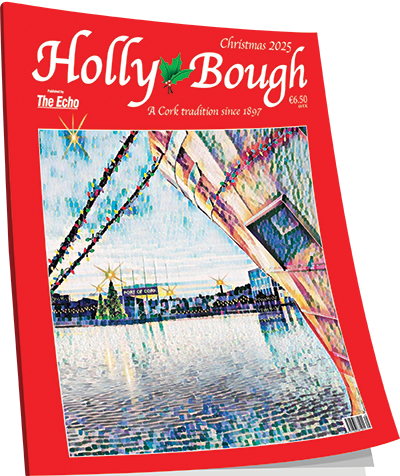Cork hurling talking points: Getting team selection and match-ups right will be vital in Limerick
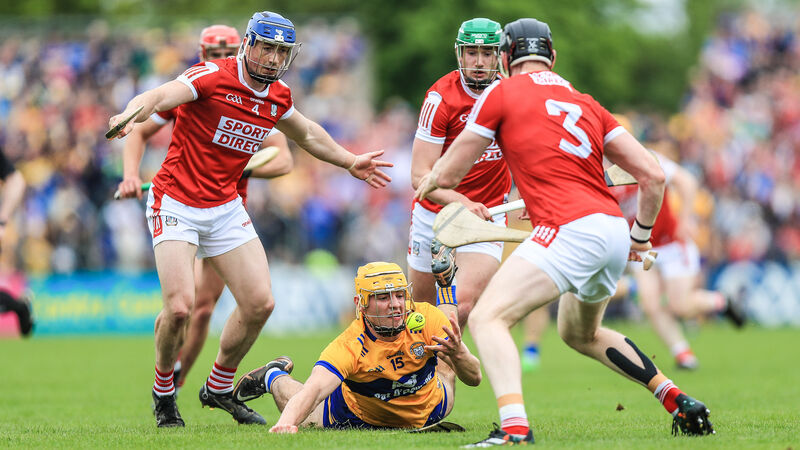
WORK-RATE: Clare's Mark Rogers with Sean O'Donoghue, Brian Roche and Damien Cahalane of Cork. Picture: INPHO/Evan Treacy
When Brian Cody was in his pomp overseeing Kilkenny's era of dominance he was never overly concerned with picking the same line-up in every game.
His explanation: "I hear people saying that a settled team is everything, But I'd prefer to have a settled spirit, settled backroom, settled unity of purpose where players take ownership."
He had his leaders and marquee hurlers of course, Henry Shefflin, JJ Delaney, Tommy Walsh and co. However, he was also able to make season-defining changes, like Walter Walsh coming in for the 2012 All-Ireland final replay and grabbing Man of the Match and Kieran Joyce repeating the feat in 2014.
The Cats had a deep panel in that era and their training ground was a crucible. Any rookie who survived A versus B combat was championship-ready.
Cork showed across the league they have a deeper panel than before and even in last weekend's loss to Clare where the absence of Robbie O'Flynn (especially), Mark Coleman and Alan Connolly was keenly felt, they were only pipped by a late, late point.
They disposed of a disjointed Waterford clinically but taking Luke Meade out of the team and pairing newcomers Tommy O'Connell and Brian Roche at midfield backfired against Tipp: Alan Tynan was Man of the Match.
In Ennis, Shane Kingston seemed the obvious choice to take O'Flynn's place but Conor Lehane got the nod and never got motoring at all. Kingston wasn't brought on until the second half, even though Cork were five points in arrears at the break. Ger Millerick didn't start when many expected him to man-mark Tony Kelly.
That's the nature of management, as Pat Ryan and his selectors are well aware. You make big calls and they won't always pay off.
However, the uncertainty about Cork's strongest team, coupled with injuries, has been an issue this May.
Ryan and co are pushing youth as much as they can this season and justifiably given Cork's underage record. Yet, you can only marvel at the old guard.
The sustained excellence of Seamus Harnedy and Patrick Horgan, as well as the reliability of Damien Cahalane across the last two summers, is critical to Cork's prospects in the Gaelic Grounds. Horgan turned 35 recently while Harnedy is 32 this summer and Cahalane will be 31. Conor Lehane is also 31 and while the Clare game was a disappointment, he has some terrific displays last season and was impactful off the bench in the Tipp draw.
Hoggie fired 1-3 from play, and assisted Conor Cahalane's goal in Cusack Park, while Harnedy clipped 0-2 for was fouled for three tap-over frees as well.

Cahalane was inspirational at times in defence, bursting out with possession and even splitting the posts.
Alan Cadogan hasn't been in action to date but he also turned 30 last week.
For that crew, Sunday's trip to Limerick could be their final outing in Rebel red. Once you move into your 30s at inter-county level, you have to hurl every sliotar like it's your last. Horgan, Harnedy and Lehane were all involved in the 2013 All-Ireland final, Cahalane linking up the following year as a dual player initially.
They'll set the tone for Cork this Sunday.
For a long time, Cork's back-line has been criticised but it's not a cliche in modern hurling to say defence starts up front.
The work-rate, tackling and hunger of the forward unit often dictates how much pressure is on the rearguard. Tommy O'Connell got caught in a mismatch with Tony Kelly in Ennis but otherwise, the defenders weren't the problem.
It was the same issue against Tipp, Seamus Kennedy waltzing up to snipe points from distance. In part, that's down to tactics, but Cork looking to free up Ciarán Joyce to protect the full-back line and he's been superb in that deployment.
However, Cork need to work like dogs up front in the Gaelic Grounds because Limerick will.
TK is exemplary in that regard. His 2-4 was match-winning last weekend but so too was his hooking and blocking all the way back to his own D. Shane O'Donnell was the same.
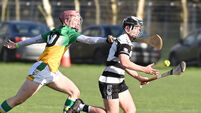
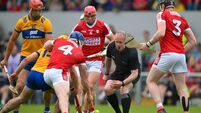
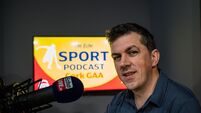
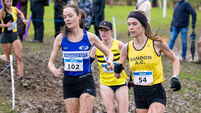

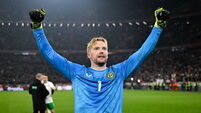
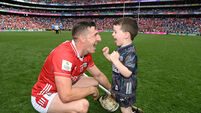


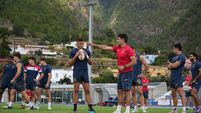
 App?
App?








